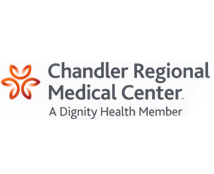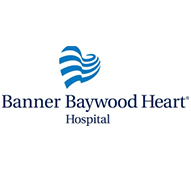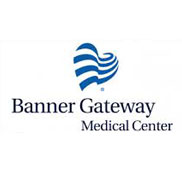Irregular Heartbeat
What is an irregular heartbeat?
‘Arrhythmia’ means irregular; heart rhythm problems occur when vital electrical impulses in your heart which coordinate your heartbeat malfunction. This can cause your heart to beat too quickly, too slowly or irregularly.
Heart arrhythmia treatment can often control or eliminate irregular heartbeats. Irregular heartbeats can cause palpitations. You may have palpitations if you notice that your heart often skips a beat or if you notice fluttering in your chest.
How do I know if I have irregular heartbeat?
You may have an abnormal or irregular heartbeat if you feel tightness or fluttering in your chest, dizziness, or have shortness of breath.
What are the symptoms of an irregular heartbeat?
It is possible to have no apparent signs or symptoms even when you do have an irregular heartbeat. In fact, during a routine examination your doctor may discover an arrhythmia (irregular heartbeat) before you do. Some people do have noticeable arrhythmia symptoms, which may include: a fluttering in your chest; a racing heartbeat (tachycardia); chest pain; a slow heartbeat (bradycardia); shortness of breath; dizziness; fainting (syncope) or near fainting; or light headedness.
Be aware that noticeable signs and symptoms do not inevitably indicate serious problems. Some people who experience palpitations may not have a serious problem, while others who have life-threatening arrhythmias may experience no symptoms whatsoever.
Is an irregular heartbeat dangerous?
Heart arrhythmias are often harmless. Most of us have occasional, irregular heartbeats that may feel like a fluttering or racing heart. However, some irregular hearts may cause annoying and sometimes even life-threatening symptoms.
Which symptoms of irregular heartbeat should cause me serious concern?
Ventricular fibrillation is one type of irregular heartbeat that is deadly. It occurs when heart beats are controlled by rapid, erratic electrical impulses. This forces the pumping chambers in your heart, the ventricles, to quiver uselessly instead of pumping blood. Without an effective heartbeat, blood pressure plummets, cutting off oxygen-rich blood supply to your vital organs. A victim of ventricular fibrillation will collapse within seconds, stop breathing and lose their pulse.
If this occurs, follow these crucial steps: call 911 or the emergency number in your area. If you or somebody nearby knows cardiopulmonary resuscitation (CPR), begin the procedure if it is necessary. CPR can help keep blood flowing to the organs until an electrical shock (defibrillation) can be administered.
Portable defibrillators, capable of delivering an electric shock to restart a heart that has ceased to beat, are increasingly on hand. They often can now be found in airplanes, police cars and shopping malls. They can even be purchased for your home if you believe that is necessary. Portable defibrillators have built-in instructions for their use. They are typically programmed to administer a shock only when appropriate.
What should I do if I think I have an irregular heartbeat?
From time to time, we all experience the occasional extra heartbeat without even realizing it and it is normal as well to have mild palpitations from time to time. People who experience harmless arrhythmias can live healthy lives without resorting to any particular treatment for their condition. Even people who have serious arrhythmias often are treated successfully and lead normal lives. If you are concerned your irregular heartbeat is a serious problem, consult your doctor.
What causes an irregular heartbeat?
Many things can trigger an irregular heartbeat, including: changes to your heart’s structure, such as from cardiomyopathy; scarring of heart tissue, such as from a heart attack; blocked arteries in your heart (coronary artery disease); high blood pressure; diabetes; overactive thyroid gland (hyperthyroidism); smoking; drinking too much alcohol or caffeine; drug abuse; stress; medications; dietary supplements and herbal treatments.
How is an irregular heartbeat treated?
Heart arrhythmia treatment can often control or eliminate irregular heartbeats. In addition, because troublesome heart arrhythmias are often made worse, or may even be caused, by a weak or damaged heart, you may be able to reduce your arrhythmia risk by adopting a heart-healthy lifestyle.
Common treatments include medicines, medical procedures and surgery. Medicines can slow down a heart that beats too fast. An abnormal heart rhythm may be corrected with medicine to ensure a more normal, steady rhythm. Medical treatments include the use of a pacemaker, the application of a jolt of electricity to the heart, and ablation therapy. Some arrhythmias are treated with surgery, especially if surgery is already being done for another reason, such as repair of a heart valve.
Who is most at risk of arrhythmias?
Arrhythmias are very common in older adults. They affect millions of people, and the number is rising.
Most serious arrhythmias occur in people older than 60 because older adults are more likely to have heart disease and other health problems that can lead to arrhythmias. Other types of arrhythmia happen more often in children and young adults. Additionally, older patients are often more sensitive to the side effects of medicines, some of which can cause arrhythmias. Some medicines used to treat arrhythmias can even cause arrhythmias as a side effect. (Some types of arrhythmia happen more often in children and young adults.)











